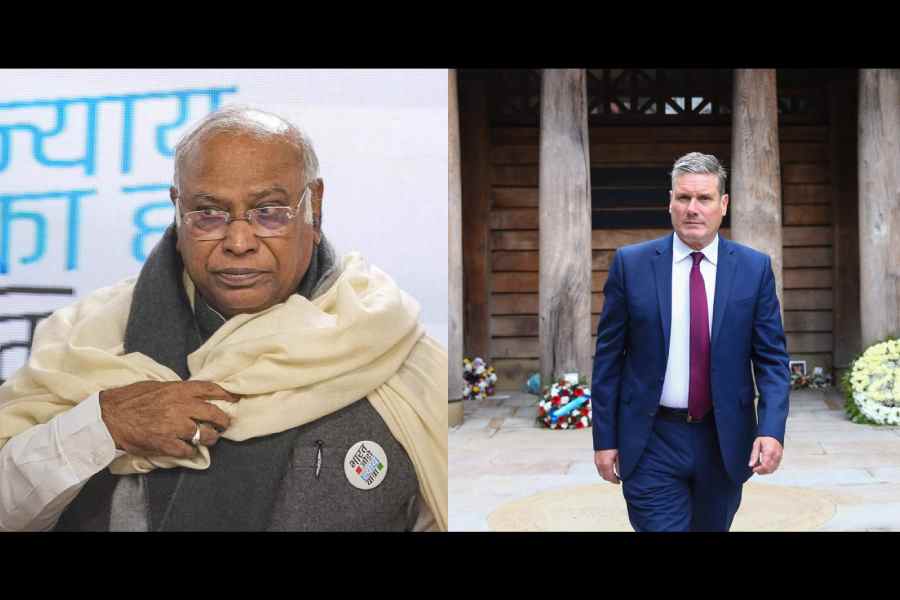There are some striking convergences between the Indian National Congress and the United Kingdom’s Labour Party. The rise of Mallikarjun Kharge, the Congress president, and the Labour leader, Keir Starmer, in their respective parties has injected fresh energy, revealing remarkable parallels between these two political entities. Both leaders, deeply committed to the principles of social democracy and progressive policies, offer the hope of a resurgence of centre-left ideologies in response to the evolving political landscape.
The historical ties between the Congress and the Labour Party go back to the pivotal era of Indian Independence. The Congress was the vanguard of India’s struggle for liberation from British colonial rule. The Labour Party championed the cause of Indian independence and its support was grounded in the shared belief in the moral imperative of self-rule. Figures such as Stafford Cripps, a prominent Labour politician, played a pivotal role in facilitating dialogue between the British government and Indian leaders. The Cripps Mission of 1942 marked a significant milestone in the Labour Party’s commitment to India’s self-determination.
In recent years, the Congress and the Labour Party have had to confront formidable political challenges. The Bharatiya Janata Party’s ascendency to power and its advocacy of a right-wing agenda have presented a definite challenge to the traditionally centre-left Congress. Similarly, in the UK, the Conservative Party’s successive electoral triumphs had profound implications for Labour. In fact, the rise of the BJP and the Conservative Party reflects a broader trend of conservative resurgence on the global stage.
Kharge’s election as Congress president has heralded a turning point for the party. His efforts in mobilising the grassroots cadre and his accessibility and organisational skills may strengthen the Congress’s electoral prospects. The recent debacle in heartland states notwithstanding, the triumphs of the Congress in Himachal Pradesh, Karnataka and Telangana stand as powerful affirmations of Kharge’s strategic prowess. Starmer’s leadership has also marked a significant departure from his predecessor, Jeremy Corbyn. An advocate of a pragmatic and centrist approach, Starmer aims to bridge ideological divisions within Labour. A pivotal strategy of Starmer’s has been a deliberate shift towards policy moderation, seeking to broaden Labour’s appeal among voters who may have been hesitant or disenchanted with the party’s previous policy positions. Furthermore, Starmer’s concerted efforts to reconnect with Labour’s traditional strongholds, particularly the ‘Red Wall’ constituencies in northern England, are particularly noteworthy. This is proof of a genuine commitment to not only understand the concerns of these communities but also frame a strategic endeavour to regain lost ground.
Despite encountering challenges from their conservative counterparts, Kharge and Starmer have instilled a renewed sense of vigour in their respective parties. As the political landscapes continue to evolve, the impact of these dynamic leaders may prove to be instrumental in shaping the destinies of their parties and, by extension, their nations.
Ravindra Garimella is a parliamentary specialist. Ashraf Nehal is a South Asian political analyst. The views expressed are personal










